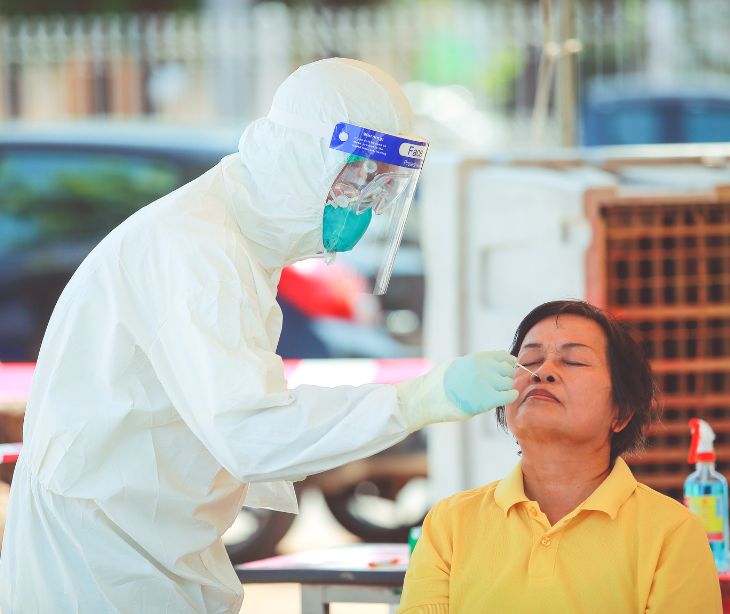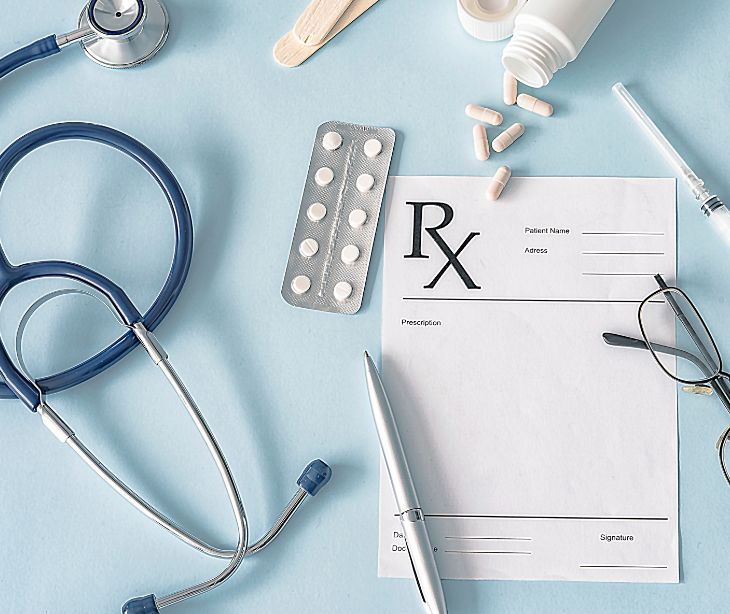
The Public Readiness and Emergency Preparedness (PREP) Act helps protect certain people and companies, like vaccine makers and healthcare providers, from being sued when they're helping during a health crisis, like a pandemic. This law encourages them to quickly create and provide medical treatments without worrying about legal ramifications.
What is PREP?
Based on the PREP Act Q&A’s section, “The PREP Act authorizes the Secretary of the Department of Health and Human Services (Secretary) (HHS) to issue a PREP Act Declaration (“Declaration”) that provides immunity from liability for any loss caused, arising out of, relating to, or resulting from administration or use of countermeasures to diseases, threats and conditions determined in the Declaration to constitute a present or credible risk of a future public health emergency.”
The PREP Act provides legal immunity to drug manufacturers, distributors, and healthcare providers from certain liabilities during a declared public health emergency.
It authorizes the U.S. Secretary of Health and Human Services (HHS) to issue a declaration that provides legal immunity to certain individuals and entities against claims of loss caused by the use of medical countermeasures during a public health emergency.
The primary purpose of the Act is to encourage the rapid development, manufacture, and distribution of medical countermeasures such as vaccines, antiviral medications, therapeutics, and diagnostic tools during health crises.
How the PREP Act and HIPAA interact
While the PREP Act focuses on providing liability immunity to entities involved in developing, manufacturing, distributing, and administering medical countermeasures during emergencies, HIPAA sets standards for protecting sensitive patient health information. During a public health emergency, such as the COVID-19 pandemic, the PREP Act facilitates the rapid deployment of medical countermeasures, potentially easing certain regulatory constraints to expedite responses.
HIPAA's privacy and security rules still apply. The HHS can issue limited waivers of certain HIPAA provisions under specific conditions to support emergency response efforts, but these waivers are carefully balanced to maintain patient privacy protections. Thus, while the PREP Act accelerates medical responses in emergencies, HIPAA protects patient health information, allowing specific, context-driven relaxations of its rules.
The provisions of the PREP Act
Telehealth
The PREP Act includes special rules for telehealth, which is when health services are provided over the phone or the Internet. During a health emergency, doctors and other healthcare workers can use telehealth to treat patients in different states, even if they don't have a license in that state. This helps more people get medical care quickly and safely.
See also: PREP Act expands support of telehealth
Legal protection for medical countermeasures
The Act gives legal protection to people and companies involved in making, distributing, and giving medical treatments like vaccines and medicines during an emergency. This means they are less likely to be sued if something unexpected happens with these treatments.
Emergency preparedness
The Act helps the country prepare for emergencies by ensuring that medical supplies and treatments can be developed and distributed quickly. This is necessary for responding effectively to health crises like outbreaks of new diseases.
Public health response
The Act supports a strong public health response during emergencies. It allows for quick decisions and actions to control the spread of disease and protect public health, like getting vaccines and treatments to people who need them.
Coordination of federal and state efforts
The Act helps the federal government work with state governments during a health crisis. This coordination allows for a unified and effective response across the country.
The role of the HHS Office of the Assistant Secretary for Health (OASH)
The Office of the Assistant Secretary for Health (OASH) at the HHS enhances the nation's preparedness for public health emergencies. Specifically, OASH is responsible for issuing guidance and authorizations integral to implementing the PREP Act.
OASH's responsibilities include:
- Issuing authorizations and guidance: OASH issues specific authorizations and guidance required for carrying out the provisions of the PREP Act. These documents outline the scope of activities and the categories of professionals covered under the Act. For instance, OASH may issue guidance on how pharmacists can be involved in testing and vaccination efforts during a pandemic.
- Defining qualified persons: The PREP Act provides legal protection to certain "qualified persons" involved in the development, manufacture, testing, distribution, administration, and use of medical countermeasures. OASH specifies who qualifies as such persons, expanding the pool of healthcare providers who can respond to a public health emergency.
- Expanding healthcare services: OASH has the authority to make determinations that can significantly expand access to healthcare services during emergencies. For example, they can authorize out-of-state healthcare providers to deliver telehealth services to in-state patients, enhancing access to health services.
- Facilitating medical countermeasures: OASH is involved in the logistical aspects of distributing and administering medical countermeasures like vaccines and treatments during an emergency, ensuring that these resources are effectively utilized where they are most needed.
- Collaborating with other agencies: OASH collaborates with other HHS components and federal agencies to ensure a coordinated response to public health emergencies. This includes aligning strategies and actions with the overall goals of the PREP Act.
See also: HIPAA Compliant Email: The Definitive Guide
Amendments made under the Fourth Amendment
The amendment expands the definition of "Covered Persons" to include healthcare personnel using telehealth, allowing them to treat patients across state lines during emergencies. It also revises training requirements for pharmacists and interns, ensuring they are well-prepared to administer COVID-19 and childhood vaccinations.
The Act broadens the scope of medical countermeasures by extending liability protections to additional private distribution channels. It also clarifies the scope of legal immunity by including situations where not administering a covered countermeasure is covered under the Act's liability protections.
See also: Case study: Common data sharing practices among telehealth services
FAQs
What types of emergencies does the PREP Act cover?
The PREP Act covers a wide range of public health emergencies, including pandemics, epidemics, and bioterrorism threats.
How long does immunity last under the PREP Act?
The duration of immunity is specified in the declaration and can vary based on the nature of the emergency, typically lasting through the duration of the emergency or until a specified end date.
What specific HIPAA rules can be waived during an emergency?
During an emergency, the HHS Secretary may waive penalties for non-compliance with certain provisions of HIPAA, such as requirements to obtain a patient's agreement to speak with family members or the need to honor a request to opt out of the facility directory.
Subscribe to Paubox Weekly
Every Friday we bring you the most important news from Paubox. Our aim is to make you smarter, faster.




